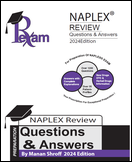
Drug Enforcement Administration (DEA) has published its final rule rescheduling hydrocodone combination products from Schedule III to Schedule II in the Federal Register.
The change imposes Schedule II regulatory controls and sanctions on anyone handling hydrocodone combination products, effective October 6, 2014. DEA first published the proposed rules in March 2014, in response to a Food and Drug Administration recommendation.
DEA received almost 600 public comments regarding the proposed rules after they were published, with a small majority of the commenters supporting the change, a DEA press release notes.
Drug Enforcement Administration (DEA) has published its final rule rescheduling hydrocodone combination products from Schedule III to Schedule II in the Federal Register.
The change imposes Schedule II regulatory controls and sanctions on anyone handling hydrocodone combination products, effective October 6, 2014. DEA first published the proposed rules in March 2014, in response to a Food and Drug Administration recommendation.
DEA received almost 600 public comments regarding the proposed rules after they were published, with a small majority of the commenters supporting the change, a DEA press release notes.



